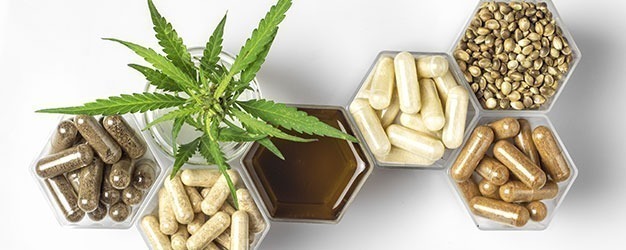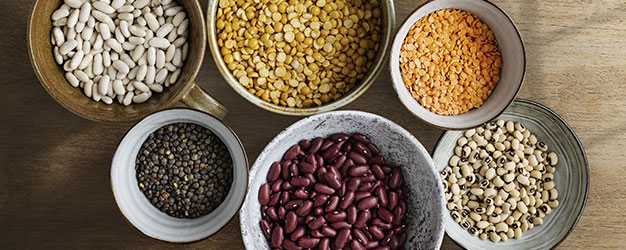Insights > Client Alerts
Client Alerts
Life Sciences Newsletter No.3 – June 2021
30 de junho de 2021

[vc_row][vc_column][vc_column_text]Our Public and Regulatory Law team presents the third edition of the Life Sciences Newsletter, with a compilation of the main news and information of the area occurred in June.
Demarest’s Public and Regulatory Law team continues to monitor developments in the Life Sciences area, and is available to provide any clarification or further information on these and other topics.
Happy reading!
Read the second issue here.
[/vc_column_text][vc_empty_space height=”50px”][vc_column_text el_id=”materia1″]
National Congress
Bill to legalize the cultivation of cannabis for medicinal purposes advances in the House
On June 8, the Special Committee of the House of Representatives, within the scope of the vote on Bill 399/2015 (already commented on in our Life Sciences Newsletter No. 2), approved an opinion in favor of legalizing the cultivation, for medicinal purposes, of plants of the genus Cannabis. The basic text of this Bill, voted on in the form of its substitute, faced a fierce vote, totaling 17 votes in favor and 17 votes against. It was up to the rapporteur of the Bill to break the tie of the vote, thus giving new momentum to this Bill of great importance.
Although the Bill is in the final stages of being passed, it will not go directly for discussion in the Senate, as an appeal was presented on June 22 to the Committee’s Board of Directors, against the conclusion of the Bill. If this Appeal is heard, Bill 399/2015 will be sent to the Chamber’s Plenary for voting.
This Bill is an important advance both for the economic sector that carries out activities related to cannabis, and for the health of those that can receive therapy from derivatives of this plant. We will continue to monitor developments and make ourselves available for clarification on the subject. For more details on this Draft Bill, please access our Newsletter No. 2.[/vc_column_text][vc_empty_space height=”50px”][vc_column_text el_id=”materia2″]
National Congress
Bill with new rules on disposal of medicines is approved by the Commission
In a vote concluded on June 10, the Committee for Economic Development, Industry, Trade and Services approved a draft that sets out new rules for the disposal of medicines and other health products, contained in Bill 11186/18.
The Bill in question aims to prevent the disposal of these products in common waste. As a result, it provides for the reversal of the burden of disposal from the consumer to manufacturers and distributors. According to the document, pharmacies, laboratories and research centers must provide citizens with specific locations for the safe disposal of medicines.
The text goes, accordingly, for consideration by the Committees of: Social Security and Family; Environment and Sustainable Development; and Constitution and Justice and Citizenship. If it is finally approved, it will change the Solid Waste Law with regard to the disposal of medicines and health products.[/vc_column_text][vc_empty_space height=”50px”][vc_column_text el_id=”materia3″]
ANVISA – National Health Regulatory Agency
Public Consultation for Unique Identification of Medical Devices
The 12th Meeting of the Collegiate Board of ANVISA approved, on June 22, the Public Consultation to support the RDC (Resolution of the Collegiate Board) proposal for positive identification (verification of compliance) of medical devices already regulated by the National Health Surveillance Agency (ANVISA). This Public Consultation will be open for 60 days after its official publication.
The RDC proposal also takes the form of a movement by the Agency towards international regulatory standards. This in light of the fact that unique identification is the international standard established by the International Forum of Medical Device Regulators. From the unique identification – Unique Device Identification (“UDI”) -, any citizen, whether in the medical field or not, will have direct access to the product registration information, through a bar code. In this way, there will be more transparency in the certification of regularity of medical devices, doing away with the need for lengthy searches in the Agency’s database of records to verify any irregularities.
It is noteworthy that the UDI project was provided for in the Regulatory Agenda of ANVISA (cycle 2021-2023), commented on in our Life Sciences Newslleter No. 2.
In order to expand the announcement of the Bill and participation in the Public Consultation, ANVISA will hold a webinar that will have more information released soon.[/vc_column_text][vc_empty_space height=”50px”][vc_column_text el_id=”materia4″]
STF – Brazilian Supreme Court
Decision on the Supply of Cannabis-Based Medicine by the State
The Brazilian Supreme Court (STF), in a landmark decision, established the understanding that the State is obliged to pay for medicines that are not authorized by ANVISA, but that do have import clearance. Such understanding emerged in the context of a judicial process that began at the state level. In this case, a patient with chronic encephalopathy and epilepsy requested that the Government of the State of São Paulo provide him with a drug based on cannabis for the treatment of these illnesses.
Consequently, the state denied provision of such drug, as the product lacked registration by ANVISA, a fact that would prevent the government from distributing it. To support its decision, the Government of São Paulo gave grounds on the thesis that distributing medication without health registration would violate the constitutional duties of the State in relation to the protection of health.
However, this argument was rejected by the TJ-SP (Court of Justice of São Paulo) and the STF, because both courts understood that the drug in question does not find a similar alternative duly registered by ANVISA, and thus, considering that it is the State’s duty to provide the universal right to health, it would the state’s responsibility to provide the medicine. Added to this is the fact that the importation of cannabis-based products is authorized by RDC (Resolution of the Collegiate Board) 327/2019 of ANVISA.
This understanding can be summarized in the following excerpt from the vote of Minister Alexandre de Moraes:
“It is up to the State to provide, in exceptional terms, a drug that, although not registered with ANVISA, has its importation authorized by the health surveillance agency, provided that the patient’s economic incapacity, the clinical indispensability of the treatment, and the impossibility of replacement by another similar one on the official drug dispensing lists and the protocols of therapeutic intervention of the SUS (Brazilian Public Healthcare Service).”
This decision constitutes therefore, even if indirectly, an advance in the access of Cannabis-based products in Brazil, since it establishes a precedent for the provision of such products by the Government.[/vc_column_text][vc_empty_space height=”50px”][vc_column_text el_id=”materia5″]
MAPA
Phytosanitary Certifications for export and import of plant-based products
On June 22, Ordinance No. 177/2021 of the Ministry of Agriculture, Livestock and Food Supply (“MAPA”) was published, which establishes the procedures for obtaining Phytosanitary Certifications for the export and import of plant-based products.
In accordance with this Ordinance, the Phytosanitary Certificate (“CF”) and Phytosanitary Certificate of Re-export (“CFR”) will be issued in compliance with the guidelines of the International Standards for Phytosanitary Measures (ISPMs) of the International Plant Protection Convention of Plants (IPPC), part of the United Nations Food and Agriculture Organization (IPPC/FAO) program. As a result, the CF and CFR will certify that the products in transit comply with the sanitary requirements of their country of destination, in the case of exports, and of Brazil, in the case of imports. To check the phytosanitary requirements for importing products, please revisit our Newslleter No. 1.
In order to obtain the export certificate, the Ordinance states that the exporter must provide proof of the consultation with the Phytosanitary Certification Body of the importing country, within 5 days before requesting certification with the MAPA unit. Upon request, products pending certification will be subject to inspection by phytosanitary surveillance authorities and, if approved, will have the CF or CFR issued by a Federal Agricultural Inspector authorized and qualified by the Plant Health Committee of the Southern Cone (Cosave).
For importation, the certificate must be issued by the competent authority of the country of origin of the goods, complying with Brazilian phytosanitary requirements, general and specific, for each plant product for import. Such documentation must have been issued within a maximum of 14 days from the departure of the objects, under penalty of invalidation of the importation.
Finally, it is worth noting that plant products that do not pose a risk of spreading pests and diseases, given the high level of industrial processing, , will not necessarily be subject to certification for export and import.[/vc_column_text][vc_empty_space height=”50px”][vc_column_text el_id=”materia6″]
MAPA
Plant-based Food Regulation Project
On June 11, the Ministry of Agriculture, Livestock and Food Supply (MAPA) opened a Public Call for Contributions (Tomada Pública de Subsídios – TPS) for the plant-based food regulation Bill. The referred Public Consultation will be available for 90 days, in the form of a questionnaire as well as supporting documentation, at the following link: http://sistemas.agricultura.gov.br/agroform/index.php/345584?lang=pt-BR
This regulation Bill aims to bring Brazil closer in regulatory terms to the plant-based and vegan food market, which has been growing globally. The Public Call for Contributions aims to provide more transparency in the regulatory process and align the future legislation with the expectations of stakeholders as far as possible.[/vc_column_text][vc_empty_space height=”50px”][vc_column_text]
MAPA
Public Consultation on the regulation of transit and certification of non-edible animal by-products
On June 28, the Ministry of Agriculture, Livestock and Food Supply (MAPA) opened, through Ordinance No. 338, a Public Consultation to obtain contributions to the draft regulation for the transit and certification of non-edible animal by-products.
The proposed regulation aims to regulate procedures for the national and international transit of animal by-products as well as the transition procedures to regularize the situation of commercial establishments in the sector already registered with the Department of Inspection of Products of Animal Origin (“DIPOA”), under the supervision of the Secretariat of Agricultural Defense.
In general terms, the preliminary document proposes the requirements for the mandatory transit document model for by-products derived from animal raw materials and those not intended for human consumption. Furthermore, the proposal regulates issues concerning international health certification and intends to define: (i) the general procedures for issuing the certification; (ii) the cases in which international health certification will not be issued; (iii) the documentation required to carry out the procedure; (iv) the method of application; (v) the deadlines for carrying out the procedure; and (vi) the controls to be carried out by the issuing units.
The Public Consultation will remain open for 60 days, with a deadline of August 26, and contributions can be sent via the following link: https://sistemasweb.agricultura.gov.br/sisman/.[/vc_column_text][/vc_column][/vc_row]
Áreas Relacionadas












